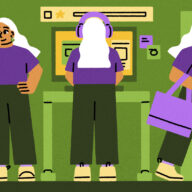Are you the type to send Slack messages around the clock? Or are you more likely to close your laptop for the day at 5 o’clock sharp? Today’s episode is all about setting boundaries with workplace communications — and it’s more complicated than you might think.
Debater Shannon Winter argues in favor of sending messages anytime – she’s backed up by Chase Warrington, head of remote at Doist who shares practical tips to set team-wide expectations. Kelvin Yap argues against after hours messaging, with support from organizational psychologist, Dr. Archana Tedone, who shares the unavoidable pressures of workplace chatter.
Episode References
“The Always on Employee: The Antecedents and Consequences of Work-Related Email Use After Hours”
Research by Dr. Archana Tedone
“How to Move Your Team Toward Async-First Communication”
Blog post by Doist
“Avoid sending emails outside working hours—your colleagues will thank you”
Forbes article by Dr. Laura Giurge, research associate of organizational behavior at London Business School
“Keeping Up With Work Email After Hours and Employee Wellbeing: Examining Relationships During and Prior to the COVID-19 Pandemic”
Research by Dr. Archana Tedone
“Stop Slacking me: How to set digital boundaries for chatty colleagues”
Washington Post
Transcript
Christine: Kelvin, Shannon! I’m so excited we’ve got two OG debaters back on the show today. It’s been a while!
Shannon: Thanks, Christine. We’re so excited to be back. I think it’s been a couple years since Kelvin and I have debated, so it’s long overdue for us to make a comeback.
Kelvin: Great to be here. Not so great to see my arch nemesis. Some would say, hasn’t been long enough between the last recording.
Christine: We’re here for a conversation. We’re here to learn from each other.
Kelvin: I’m not, I’m here to win. That’s all I wanna do.
Christine: Welcome to Work Check an original podcast from Atlassian, where we debate whether workplace practices are still working for us. I’m your host and judge, Christine Dela Rosa. And I like my messages like I like my scary movies: not too many after dark.
Shannon: So good.
Christine: Which brings me to today’s debate: Should coworkers message each other after hours? Shannon, you are arguing coworkers should be messaging each other anytime, any hour. How much does that ring true in your day-to-day?
Shannon: I mean, I’m not gonna say I’m like messaging coworkers at 3:00 AM. But I think that I’m definitely more on the side of setting your own boundaries and messaging when it works for you.
Christine: So you’re saying you have messaged people at 3:00 AM, but you’re not saying everyone needs to do that right?
Shannon: I’m not gonna let you put those words in my mouth. But I will say one of the reasons I’m excited to talk about this is mostly just cuz how controversial it is on our team, Christine. Christine and I are on the same team. And this topic came up. I thought it was pretty cut and dry, but it was just shocking how split everyone was. So I’m just excited to debate something that is very hotly contested.
Christine: Totally.
Kelvin: Shannon, I thought you were excited to lose a debate.
Shannon: We’re back in action.
Christine: And that brings me to you, Kelvin. You are arguing: Coworkers should not message each other after hours.
Kelvin: Yeah, I’d like to think unlike Shannon, I have a bit of life outside of work, and I like to partake in other activities that don’t require annoying my coworkers.
But on a more personal note, yeah, I think this particular debate topic rings near and dear to my heart because, uh, at the outset of the pandemic, I actually took some time off to look after my mental health. And a large part of it was a lot of the boundaries, or the lack of boundaries I should say, of my work hours blurring into my personal life.
You know, like a lot of other people, the only space I had was in my bedroom for my desk and my computer. And I can still picture it today – you know, the Slack pings going off at all times of the night. And I just found myself checking work over, and over, and over again. And so I ultimately took some time off to really just look after myself and, uh, put some things in place to make sure that I could create those boundaries.
Christine: Sounds like putting those things in place is exactly what you’ll be advocating for here today. So let’s get into it! Shannon, I’m gonna put you up first. Tell us, why do you think coworkers should message each other anytime they need to?
Shannon: All right. Well, I’m gonna start off with a word that keeps coming up for me with this topic, which is autonomy. In my research, I came across a 2021 study from Jabra that found that a majority of knowledge workers said they would actually choose flexibility over salary increases. Flexibility and autonomy are huge indicators of workplace satisfaction and wellbeing. So it’s really better for employees when we let them dictate when they work, and therefore, when they send or check their messages.
And we’ve seen the norms change, right?
It’s kind of becoming less common for everyone to follow a traditional nine to five working schedule. Depending on personal preferences, time of life, it’s kind of impossible to guess when someone is or isn’t up for receiving messages.
I thought a lot about how a lot of parents on our team will end up finishing work a little early to pick the kids up, spend some time with them, and then they’ll get back on later and do some work before they go to bed. And I don’t have kids yet, but I am pregnant…
Christine: Yay!
Shannon: Yay! And I have needed a nap around 3:00 PM a lot of days. And so I’ll do it, but then I’ll jump back on later in the evening to wrap things up.
Kelvin: Shannon, I’m not pregnant and I need a nap at 3:00 PM every day.
Christine: I too try to nap in the afternoon sometimes!
Shannon: I support all napping.
Kelvin: In fact, it’s almost 3:00 PM here. I’ll be, I’ll be back in 15 minutes.
Shannon: So you know, all to say, schedules are always a little different just depending on what’s going on in a given day, week, or time of life. And trying to predict when our colleagues are working with scheduled messages isn’t a perfect solution.
We actually put a call out for stories from our listeners for this episode, and one of our callers left us a voice note about this exact issue:
Voice Memo 1: I hate timed messages so much. This morning, I actually got three timed messages: one at 8:00 AM one at 9:00 AM and then I just got one at 10:00 AM. I mean, we work with people across four time zones, but sometimes I start early, sometimes I work late. I take maybe time off in the day to run errands. So my schedule is flexible. And this morning was just horrendous because now I’m changing what I’m doing during the day because I have these timed requests coming in, and I was working before any of them came in. So man, I wish we would just get rid of timed messages and let people manage their own notifications.
Shannon: Yeah, schedules vary. So it’s just a lot easier to let people manage their own notifications. And going back to that first word I brought up, it really empowers employees with autonomy when you let people set their own boundaries day to day.
Christine: And who doesn’t want that?
Shannon: Right? And that flexibility we get from working remotely has also changed the game on where we work.
It’s amazing for employees to have freedom to choose where they live and companies to hire talent across the globe. But if you’ve ever been on a team or a project that has people in multiple time zones, you know, it can be super, super tricky to know when people’s working hours actually are.
Christine: Yeah, I agree. I do that all the time. I send a note and I’m like, “Is this after their hours? Let me look you up in the directory. I have to find out which country you’re in.” Look up their time zone. And I’m like, “Oh, actually it’s only an hour difference.”
Shannon: Totally. So it’s, yeah, it’s just cumbersome, right, to like pause every time you need to send a message and do all the mental calculations of where someone is in the world at a given moment.
Christine: Yeah. I relate. Kelvin, do you?
Kelvin: Yes and no. But for the purpose of this debate, no. I think the important word you’re using there, autonomy, is great, right. I think we live in a world where there is flexibility in terms of where we can work, how we work, and pertinent to this debate, when we work. But I think autonomy only works when there is a degree of empathy and understanding as well.
Christine: Mmhm.
Kelvin: I think it’s hard for us to say, you have the flexibility to to work whenever you want. And you know what, that gives me the license – whether it’s a peer or a superior – whoever it is, to hammer you with messages whenever, just because it’s flexible. Right?
And I think the solution is to have an agreed upon, shared work week. Then any work you do outside of that is your choice, and not dictated by Slack pings.
Otherwise it’s way too easy for work-life boundaries to get blurry, and for people to contact you at…let’s say inopportune times. Another listener shared her story with us:
Voice Memo 2: It was New Year’s Eve and I was celebrating with my loved ones when at around 11:00 PM, one of my clients just started blowing up my phone with texts and calls and emails because he couldn’t remember the passwords to his social media accounts. Not his company’s accounts – his personal accounts. Not even what I was brought on board to help out with. I was furious. I just turned off my phone, and then didn’t reach back out until the following Monday when everybody was back in office, and gave him a kind reminder that I was just as entitled to holidays as he was and he should probably think twice before reaching out about his personal social media accounts. He did apologize.
Kelvin: Too right. I can’t imagine that happening to me. And things have gotten so extreme that laws are being passed around this concept of the Right to Disconnect, legally protecting employees time off.
Christine: Really?
Kelvin: Oh yeah, I think it started in France. It’s in Spain and Belgium, even parts of Canada at this point.
Christine: So what does that even look like? The right to disconnect? I get the concept, but what would the laws look like?
Kelvin: Well it varies from place to place. But basically employers and employees need to agree about when workplace communications are cut off. I think in some countries it’s even illegal for employers to contact you outside of work hours.
Shannon: Wow.
Christine: I could get behind that.
Kelvin: So instead, I say you should schedule your messages, or even better, wait till an appropriate time.
But either way, the onus for me is on the messenger – not the recipient – when it comes to sending messages. Yes, it’s hard to understand when people are working during the day, but I don’t think the onus should be purely on the receiver in terms of how to deal with communication that gets sent their way.
Shannon: Mm-hmm. Well, and I definitely wouldn’t argue with, I mean, you know, that New Year’s Eve story, I think we would all agree that’s terrible.
But to me, this speaks more to a larger workplace culture issue. In a healthy team culture, we respect one another’s boundaries and we trust each individual to set boundaries that work for them.
So I just think the onus is on the recipient, not the sender.
I’ll also say, to your point about burnout earlier, Kelvin, when we were all adjusting to remote work, that totally was the case. It was easy to feel like you had to be online all the time. But I think the expectations have changed, or are changing. We no longer need to see Slack as a synchronous tool only. We can think of it more like email, and expect each person to respond when it’s right for them.
And on that note about setting expectations, I want to bring in my guest, Chase Warrington. He’s the head of remote at Doist. They make productivity software, and they work across 35 different countries. So they’re really an async-first company. And they make sure to set really clear expectations around response times. Here’s Chase:
Chase Warrington: So when I send something to a colleague, my expectation is that within the next 24 hours, they’ll get back to me. Often it happens much quicker. But I’m not thinking about what time it is for that person, because the expectation is that person, wherever they are, is not beholden to being available at that exact time – regardless of whether it’s 9:00 AM their time or 9:00 PM their time. It’s irrelevant to me. And my hope and the expectation is they’re not online sitting, waiting to check their chat tool to get back to me either.
Shannon: So, I mean, the solution feels simple to me. Like you’re in control of your notifications, and you can set boundaries as you wish. Especially most tools we use now have pretty robust notification settings. You know, you can do specific ‘do not disturb’ hours, or you can even take Slack or other tools off your phone altogether.
I don’t go as far as removing Slack from my phone, but I do remove it from my home screen and have pretty strict hours where I have ‘do not disturb’ set. So I don’t see the notifications and I’m not even tempted to go in there and look.
Here’s Chase again, talking about how he handles that.
Chase Warrington: There’s also some protect yourself from yourself sort of thing. We have a natural tendency to want to check those things off, to clear out inboxes, to not let things pile up. And that can be very tempting to fall into that trap. So, for me, for instance, I remove work apps from my phone. I have no notifications turned on. I often hear people struggle with that – but I don’t see why, personally, if you’re working in an asynchronous environment, because by definition, you don’t have the need to respond immediately.
Shannon: I think setting expectations is the name of the game, as we’ve talked about. And to some of Kelvin’s points too – I think it would be so much easier if everyone was the same on a team, and everyone could have the same working agreements. But since everyone’s so different, we can’t guess what preferences are. So in my mind, we have to put it on the individual. We can’t make people guess about the receiver’s preferences and hopes and boundaries.
Christine: Yeah. I was like, “A world where everybody had the same hours and preferences…” I’m like, but that’s not real. I don’t even have that within two single people.
Kelvin: I’ll be clear here. What I’m advocating for isn’t this global agreement across every single person that these are the hours that you must work, right? But using a similar framework within a team to understand ‘these are the usual hours in which communication is okay’ allows you to really answer that question in a more of a black and white way.
Should I be doing this now or not?
Christine: Okay. So this is interesting. Because I feel like this is really boiling down to: who should set the boundaries around when we contact our coworkers. Like Shannon, going back to your first point on autonomy, I’m hearing that the recipient is in control and can set their boundaries.
Shannon: Oh yeah.
Christine: And then Kelvin, what I heard from you is that the onus should be on the sender. That it’s about empathy and setting expectations on behalf of your teammate.
Kelvin: Exactly.
Christine: I’m sure that both of you would agree there’s, there’s a little bit of both in there. But which should sort of lead?
Kelvin: I don’t think there needs to be a leader here. It’s everyone though, right? Shannon, I think you used the word ‘hope’ before – hope that the other person should know not to rush to respond.
That to me is like, uhh, it’s not good enough. It needs to be more black and white. And I think that it does really need to start with the sender of the message to really understand what kind of impact it can have on the person receiving it.
So I personally don’t think we should message our coworkers outside of work hours, because even if we don’t mean to, it creates this pressure to respond.
There’s a human behavioral element there in play as well, that really does impact your decision making as to when to respond and how to respond. Scott Farquhar, one of the co-founders of Atlassian, his Slack status is “prefer email, if not urgent.”
And so there is this unspoken understanding that if I get a little red notification from a tool like Slack, which we use both as a synchronous and asynchronous tool, there’s a level of urgency, whether warranted or not, but purely based off the delivery of said message that forces you to think and react in a way that isn’t – to be honest with you – really great for your mental health.
And this impact is backed up by research, conducted by Dr. Archana Todone. She’s an assistant professor of industrial and organizational psychology at the University of Baltimore. And she studied the effect of engaging with work email after hours.
Dr. Archana Tedone: Something that we’ve found in our research in this area is this idea that individuals feel different levels of pressure to respond to messages. Not because of external pressures, but because of an internal pressure to respond. And so this variable, or this idea, is called telepressure. So, this feeling that I can’t let a notification go on my phone without responding to it. I mean, I think we all can think of some of those people that see a text message pop up on their phone, or the little red indicator on their notifications for their email or text messages. Even if they don’t want to be checking their email, they sometimes can’t help themselves if they get something after 5:00 PM. So if they’ve indicated their work hours in their calendar, or something like that, and you can easily avoid them feeling that level of pressure, then go for it! Click on that ‘delay send’ and it’s sort of a win-win for everyone.
Kelvin: And this is especially true when there are power dynamics at play. You can tell me to manage my own notifications, but if I’m new to a company, if it’s the founder of the company messaging me on Slack – irrespective of whether they say, “Hey, you can deal with this in 24 hours” – there’s a natural inclination and a human behavior….
Christine: I will do it right now.
Kelvin: I will do it right now ‘cuz of this person, right?
Christine: Yeah.
Kelvin: And I think even to this day, you know, we are more remote, we are more flexible. When it comes to career growth and career progression, I would even say that the responding of messages with a sense of urgency is the virtual equivalent of being first to arrive in the office every day, and the last to leave after everybody else, right?
So if you’re a person in power, you have to know you’re putting even more pressure on the person getting your message after work hours. And as Archana tells it, you’re setting up communication norms that others will follow.
Dr. Archana Tedone: This ties into the tenets of social learning theory by Albert Bandura. And this theory says that people learn behavior by observing and mimicking the behavior of others. And we tend to really more closely mimic the behaviors of those we deem to be in positions of power. For example, like supervisors or our peer groups, like coworkers or teammates, right?
For example, in a past workplace on paper, you know, we could disconnect after work hours. However, when I did get those emails at 8:00 PM or 9:00 PM and responded to them, I got back messages like, “Thanks for being so responsive. You’re such a great team player.”
So when you’re in a work team, and other people are engaging in these behaviors and are getting rewarded and complemented and recognized for what they’re doing, then you might end up thinking, you know, “This is a behavior I should be engaging in as well.” And so even formal policies and rules might exist, but really the stronger drivers of your decisions and your behavior are going to be those norms and those unwritten rules that all contribute to the norm of your workplace. And your team in particular.
Kelvin: Yeah. And I think it’s not just the job of management and leadership, but also longer-term employees – those that have lived and breathed and contributed to the culture – to be custodians of it as well, and to exhibit those good habits. And I think there’s a lot of nuance and gray area when it comes to the ‘who should, who shouldn’t’ respond to messages at all hours of the day. And the easiest way to get around that is to just not do it at all.
Christine: Yeah, I really appreciate this point that you’re making because even in the examples of the types of messages that you’re getting, I myself have forgotten that I’ve been in those situations and got the response back when I responded at 11:00 PM at night and said, “Oh, I really appreciate it, you’re a lifesaver.Thanks for really putting a priority on this and getting back to me.”
I forgot that I got that serotonin boost and went, “Oh, great. Next time I’ll do that too. I’m gonna be the reliable one that can get back really fast.” I think that’s a reminder that there are unspoken, you know, psychological things happening that I’m not necessarily taking into account until the next morning.
Shannon: Oh yeah. I mean, I can definitely empathize with those points you made, Christine. I’ve been in those situations, too. I do think it kind of goes back to the notifications thing – like if you’re setting your notification boundaries, you shouldn’t be getting them at 11:00 PM or on New Years or whenever. But I definitely wouldn’t argue against the fact that power imbalances are super real.
But I have seen people figure out strategies to reduce that effect. Christine actually you do – not saying you’re in a position of power over me – but what you do that I always really appreciate is often, if you’re messaging me, and even if it is working hours or non-working hours, you’ll be like, “Hey, not urgent, but blah, blah, blah, blah.” And that just sets like… you’re like “What is she gonna say.”
Christine: I wasn’t sure what you were gonna say. I was like, “Uh oh!”
Kelvin: I thought it was gonna be way more negative. I was like, “I’ve surely won this debate based off this comment alone.” This is great.
Shannon: And, and you know, I’ve had managers do that too, like, I think as long as the expectation is set I think it’s as easy as having a little preface in a message saying, “Hey, no rush on a response here. We’ll talk about it tomorrow.”
Kelvin: I think when you start to use chat tools like Microsoft Teams and Slack for asynchronous messages, like, “Hey, you can get to this later,” it is a cognitive load that can cause a little bit of confusion, a little bit of struggle – ‘cuz you’re sending it to me directly live right now, but you’re telling me that it’s not urgent. So, cool.
Christine: Wow. That is a whole nother debate, Kelvin, on whether or not chat tools should be solely, or for the most part, asynchronous or synchronous.
Shannon: Work Check season four.
Christine: So many good points? I keep going, “Oh, but that’s true. Oh yes, that’s true too! Oh yeah, that’s true too.”
Uh, I’m pretty overwhelmed. I’ll be real. I came into this debate thinking, “Oh, I’m the kind of person that sets my own boundaries and I just hope that everyone does that for themselves.”
Shannon: Yeah.
Christine: It’s kind of like what you were saying Shannon – like, you should be in charge of your own boundaries, and clearly communicate them with your team. But Kelvin, you did point out that setting boundaries can be hard. I’m thinking of teams that don’t have that autonomy and psychological safety to do that.
So with that said, maybe I should stick to a slightly stricter set of hours. And maybe I should change my ways. Will I do it? I don’t know. But for right now, in the moment, that’s how I feel. And so, Kelvin, you are the winner of today’s debate!
Kelvin: Yes!
Shannon: Oh my gosh.
Kelvin: Shannon, let the record show I have finally bested you, and you know what? I’m gonna remind you at 1:00 AM every day via Slack message, just so you know, and you can deal with it however you want.
Shannon: That’s fine ‘cuz my notifications will be off. But Christine, I can’t believe you’ve done this to me. Kelvin will never let me live it down!
Kelvin: Feels so good.
Christine: I did not know the repercussions of that message. I could not take that into account. I should have just avoided this all together.
Christine: But seriously, I hope everyone takes away from this, that more communication, more conversation, about how people like to work and the impact on them – I hope that’s the bigger takeaway than, you know, necessarily which side won this debate.
Kelvin: Here, here. I agree.
Shannon: For sure.
Christine: But for anyone out there that wants to dig into the details of this episode, you can see the transcript and more at atlassian.com/blog. And until next time, I’m Christine Dela Rosa and this is Work Check, an original podcast from Atlassian.









































